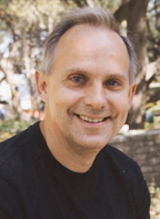
“Then Simon Peter came, following him, and went into the tomb. He saw the linen wrappings lying there, and the cloth that had been on Jesus’ head, not lying with the linen wrappings but rolled up in a place by itself. Then the other disciple, who reached the tomb first, also went in, and he saw and believed; for as yet they did not understand the scripture, that he must rise from the dead.” John 20: 6-9
One of the biggest theological debates we had in seminary was about what we believed or didn’t believe about the Resurrection.
For some of my classmates, Jesus rose, plain and simple. The tomb was empty. They saw and believed.
Others were a bit more skeptical about the actual facts. But whether or not the tomb was empty, they saw the life and continuing presence of Jesus as powerful enough to build their own lives around. They too, saw and believed.
As someone who fled an evangelical tradition in which miracles were common and comfortable, I fell into the more skeptical camp, although my actual pronouncements would probably have fallen somewhere in between.
Like Thomas, I wasn’t there, after all. I did not see, and so could not believe.
If the tomb was empty, cool. If the tomb wasn’t empty, that was okay too. The empty tomb was a story with truth and power, whatever the historical truth might be.
I remained suspicious of miracles, of the underlying logic of them. As Augustine pointed out, the fact that God could intervene in human history did not mean that God was obligated to do so. But how did God decide when, where, why miracles come? Why heal this man blind from birth and not some other? Why save this woman from an issue of blood and perhaps pass by another suffering from tuberculosis or cancer?
Life would be easier, I thought then, without miracles.
Then ten summers ago, I was working as a hospital chaplain at Brackenridge, the regional trauma center near downtown Austin. As many of you know, most victims of drowning, overdose, car wrecks, and other mishaps are taken to Brackenridge, and during my summer of Clinical Pastoral Education there, I walked alongside people and their families who had suffered great losses.
Hard as that was, I was able to identify with their suffering, for I have known suffering. I understood their requests for God’s miraculous intervention, because I have made such requests. But I also knew – or thought I knew – that the ultimate trend of all matter in this material universe is toward death and destruction, and I hoped to help people accept that.
One day on the critical care ward, a completely undignified shout went up from the hallway. I looked in that direction, expecting to see nurses and other hospital workers moving over to shush whoever was making the noise.
Except that it was nurses and hospital workers who were shouting. They were clustered around a handsome young man of around twenty, shaking his hand, clinging to his neck, and Jolynne, the charge nurse, must have seen my look of confusion, because she drawled: “That’s Perez, the famous Perez. He was in 606, in a coma.” She indicated the intensive care room right across from us. “Thrown riding a bull. He was brain dead. We had a couple of ethics consults – most of us wanted to pull the plug.” She sighed at the memory. “But the family asked us to give it three months.”
“He was brain dead,” she repeated. “We thought he’d never come out of it. But,” she blinked, a tiny smile growing across her face, “he did.”
Sandra, another nurse, bounced back from the throng and settled in at the nurses’ station.
“Perez is here,” she told Jolynne, who nodded and smiled back. “He’s walking and talking.”
“Wow,” I said, because I was dumb enough to believe I ought to say something. “He really beat the odds.”
Sandra held up her finger to shush me. “There were no odds,” she said, waving that finger at me. “He was brain dead, and nerve tissue don’t grow back.” She looked down the hall, where Perez was walking to the far nurses’ station. “And now – he’s all walky-talky.”
This story about the Famous Perez is clearly a resurrection story, and although you and I know that this story is notable, that resurrection almost never takes place, nonetheless, here it is.
Like Jesus on Easter morning – something happened. I can’t explain it, my life is easier if I don’t have to think about it, but in this story, God moved in some fashion to make things right, and things were never the same afterward.
Ultimately, I think that’s where we should land in thinking about the Resurrection, on the notion that something happened that changed everything, including, I hope, us.
John Dominic Crossan spoke about the notion of “operational belief,” the idea that whether you believe the Bible stories (including the Resurrection) literally or figuratively, those beliefs ought to make a living difference in your life.
And Rowan Williams has written about the Resurrection that “What is vital to Christian discourse about the resurrection can be stated exclusively in terms of what happens to the minds and hearts of believers when proclamation is made that the victim of the crucifixion is the one through whom God continues to act and speak.”
In other words, the resurrection story, however we understand it, whether or not we can explain it, should make a difference in our minds and hearts. It’s supposed to; that’s what resurrection does. Resurrection stands up against the tide of sin and death, it proclaims hope over despair, and it tells us that whatever happens to us, thanks be to God, the end of things is not really the end of things.
And that should change us.
We should see. And believe.
When have you experienced resurrection in this life? How has the community of which you’re a part known resurrection? How do you tell those stories?
 Greg Garret (@Greg1Garrett) currently serves as the Writer-in-Residence at Seminary of the Southwest. As a member of the adjunct faculty of the seminary, Greg helps future leaders of the Church to write, interpret, and communicate effectively.
Greg Garret (@Greg1Garrett) currently serves as the Writer-in-Residence at Seminary of the Southwest. As a member of the adjunct faculty of the seminary, Greg helps future leaders of the Church to write, interpret, and communicate effectively.

